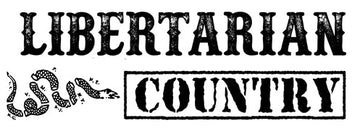One of the most common claims made by socialists and communists is that working for a boss is not truly voluntary. They argue that the worker faces a “Hobson’s choice”—either submit to the employer’s terms or face starvation and homelessness.
To them, this pressure amounts to coercion. At first glance, the claim seems compelling. After all, everyone must eat and survive. But upon closer inspection, the socialist argument falls apart.
The Difference Between Nature’s Demands and Human Coercion
Libertarians emphasize that natural law is not the same as human coercion. Hunger, cold, and the need for shelter are facts of nature. These conditions exist regardless of whether society is capitalist, socialist, or anything else. To say that a boss threatens his employee with starvation is to confuse nature’s demands with a moral violation.
A “right” is only violated when one person initiates force against another. A boss who offers a wage in exchange for labor is not threatening violence. He is extending an offer of voluntary exchange: You provide value to me, and I will provide value to you. Both parties may walk away if the terms are not acceptable.
Voluntary Exchange vs. Exploitation
Socialists often insist that even if the boss does not directly threaten the worker, the mere fact that workers need money to survive proves “exploitation.” But this, too, is a flawed argument. It overlooks the fact that every individual has the capacity to create value without a boss.
Humans are not helpless animals waiting to be fed. We have reason, creativity, and the ability to produce. A person can farm, build, write, sell, or invent on their own. History is filled with examples of men and women who struck out independently and thrived without submitting to an employer.
The very existence of self-employment, entrepreneurship, and small business ownership disproves the claim that work must be servitude.
Working for a boss is a choice, not a requirement.
For many, it is the most efficient way to earn a living because specialization and cooperation allow for higher productivity. But nothing about the arrangement removes the worker’s freedom to leave, renegotiate, or pursue a different path.
Why the “Starvation” Argument is Misleading
When socialists say that workers “must” accept employment or die, they overlook a crucial point: survival always requires effort. Even in a socialist utopia, people must work. If the state guarantees food and shelter, it is only because someone else worked to produce those goods, often under compulsion. The difference is that under socialism, the threat of violence is real. Refuse to work for the state, and you can be fined, imprisoned, or worse.
In capitalism, the only “threat” is nature itself—the same threat that existed before civilization, before bosses, and before wage labor. Capitalism does not create the struggle for survival; it provides the most efficient means of overcoming it.
Work as a Free Choice
At its core, the libertarian argument is simple: all work under capitalism is voluntary. You may not like your job, your wage, or your boss—but you are free to quit, negotiate, or strike out on your own. That freedom, imperfect as it may feel in practice, is fundamentally different from coercion.
If someone opens a bakery and offers you $20 an hour to help, that is not exploitation. It is an opportunity. If you don’t want to take it, you can decline. You can find another job, start your own bakery, or do something entirely different. Your life belongs to you.
Conclusion: Freedom vs. Coercion
The socialist claim that wage labor is slavery rests on a confusion. Nature demands that we work to live, but nature is not a tyrant. A tyrant is another man who threatens to cage or kill you if you don’t obey. Under capitalism, no man has the right to enslave another. Wage labor is not a threat; it is a contract.
Working for a boss is voluntary because both the worker and employer have alternatives. The worker can create value on his own, just as the employer can seek out other workers (or automation). That mutual dependence is not exploitation—it is cooperation.
In a free society, the dignity of work lies in the fact that it is chosen, not forced.
Stay principled in style! See our latest and greatest here! 👇


